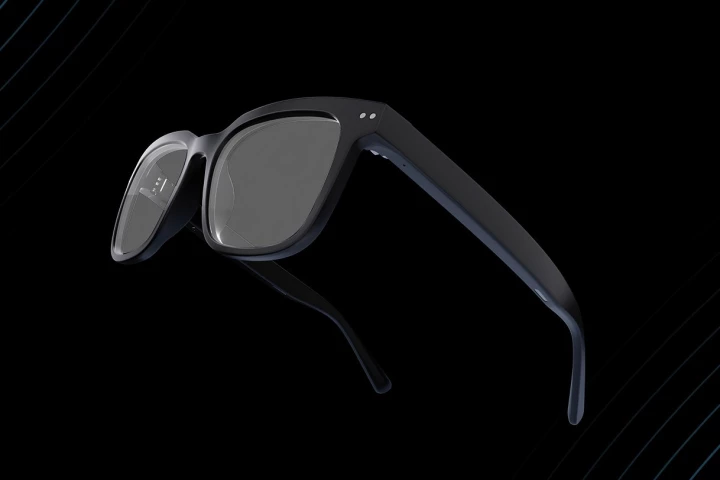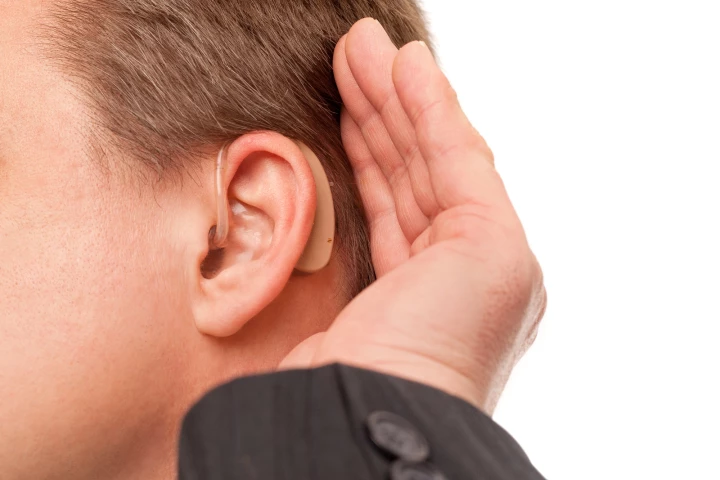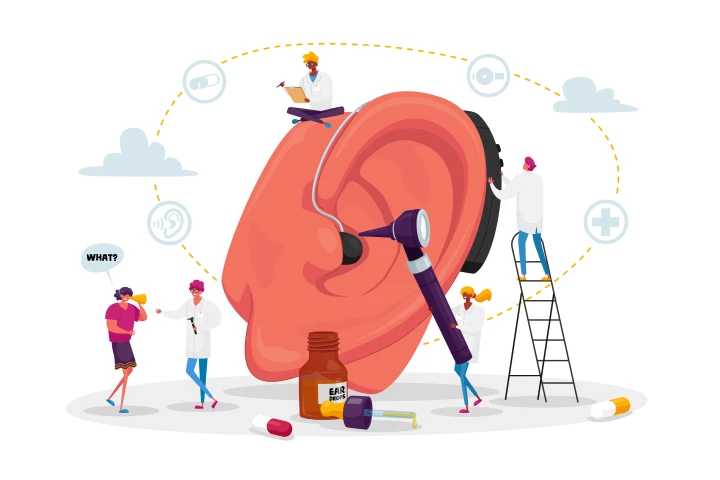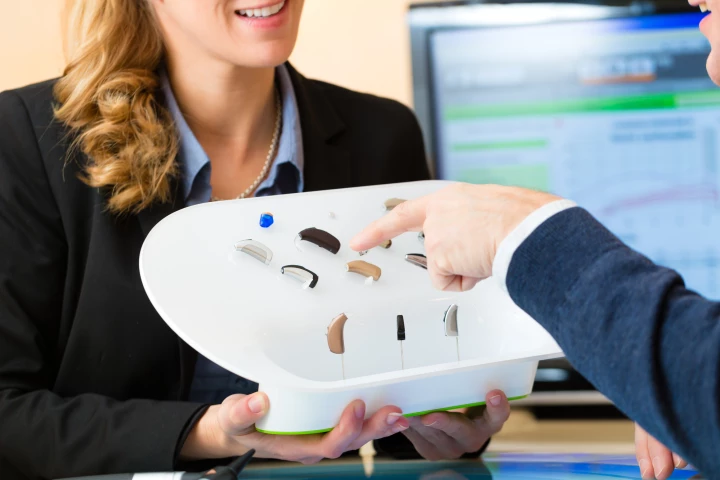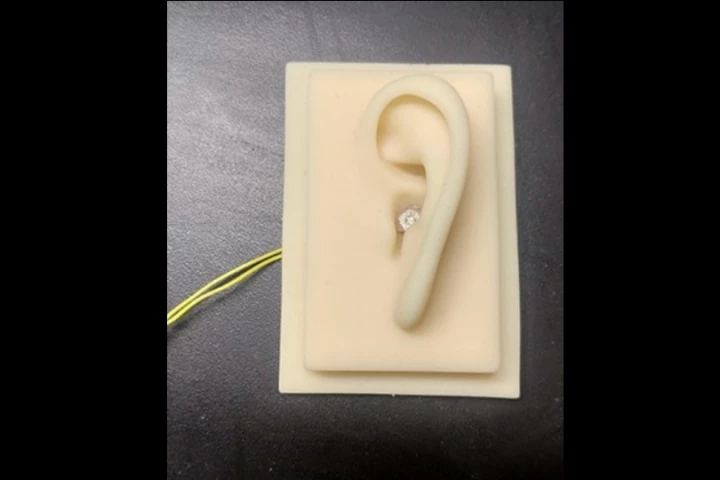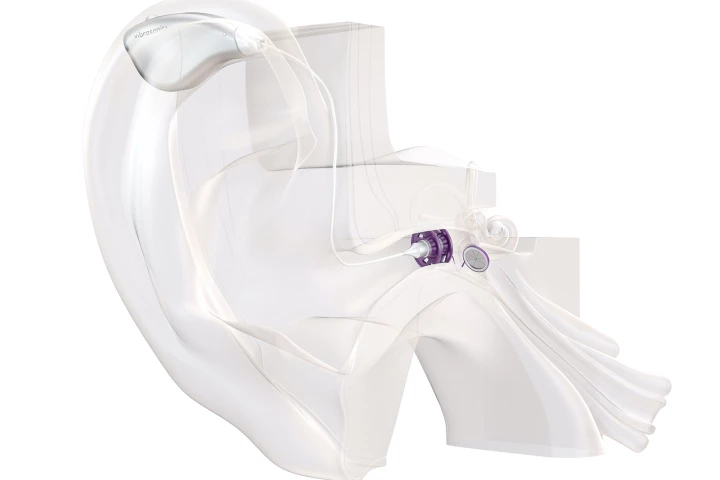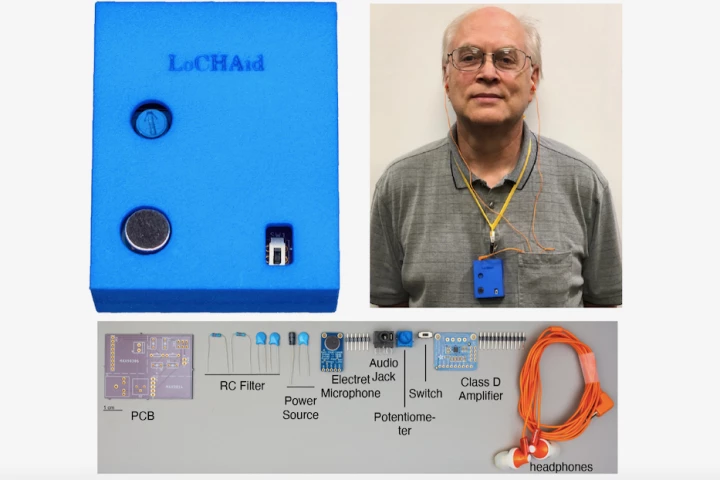Hearing Aid
-
These glasses from Nuance Audio hide clever tech in the frame to help you hear better in noisy environments, without the need for traditional in-ear hearing aids. They'll run for 8 hours on a charge, and are indistinguishable from regular glasses.
-
Even when using a hearing aid, it can be quite difficult for deaf people to make out specific individuals' voices in noisy environments. The new SpeakerBeam system could help, by automatically recognizing and boosting a select person's voice.
-
A team of researchers has created a way to inexpensively manufacture acoustic head simulators. They can help measure the way we take in and process sound – especially in noisy environments like cocktail parties.
-
A first-of-its-kind meta-analysis has found a significant association between the use of hearing aids and a reduced risk of dementia. The findings suggest that using hearing restoration devices could slow the progression of cognitive decline.
-
A team of scientists exploring low-cost alternative for hearing aids has turned to Apple’s AirPods as a potential solution, assessing them alongside conventional hearing aids and finding they stack up surprisingly well.
-
The US FDA has established a new category of over-the-counter hearing aids. The move comes as part of a push by the US government to make healthcare more affordable, allowing millions of people to buy low-cost hearing aids without prescription.
-
Although hearing aids do make life easier for many people, their limited battery life can be problematic. Scientists have set about addressing that shortcoming, by designing a hearing aid that requires no batteries.
-
In most hearing aids, sounds emitted by a tiny speaker are directed down the ear canal. The "alpha" hearing aid is different, however – and reportedly better – in that its speaker actually sits directly against the wearer's eardrum.
-
Audio gear titan Bose has embarked on its first foray into the hearing aid space, and made quite an entrance with the first direct-to-customer model for adults to be cleared by the Food and Drug Administration.
-
These Bluetooth earbuds are also FDA-approved as hearing aids, and they claim to be able to dial down background noise and clarify conversations thanks to clever real-time audio processing in noisy environments.
-
Hearing aids are often stymied by the "cocktail party" effect, wherein they can't amplify one person's voice without also boosting the voices of everyone else in the room. A new AI system, however, could help focus the devices' attention where it's needed.
-
Hearing aids may indeed be commonly used and relied upon in the First World, but they're still too expensive for many people in developing nations. The experimental LoCHAid device, however, is aimed at changing that.
Load More
